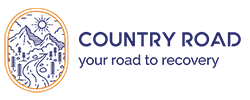Veterans struggle with substance use disorder more frequently than civilians. At the same time, they’re more likely to suffer from PTSD and mental health issues. Those two facts are linked, and understanding the connection helps shed light on how to treat both addiction and mental health issues in vets.
What is Substance Abuse Disorder?
Substance abuse disorder is a brain disease commonly (and previously) known as addiction. It is featured in the DSM-V (Diagnostic and Statistical Manual of Mental Disorders), which doctors use to diagnose mental illnesses. This manual provides a helpful list of substance abuse symptoms that medical professionals can use when screening clients for substance use disorder. Only a medical professional can truly diagnose substance use disorder, but you can ask yourself about these statements from the DSM V or consider a loved one to get more clarity around the substance use. True or false?:
- Your drug of choice is often taken in larger amounts or over a longer period than was intended.
- There is a persistent desire or unsuccessful efforts to cut down or control drug use.
- A great deal of time is spent in activities necessary to obtain drugs, use drugs, or recover from using drugs.
- Craving, or a strong desire or urge to use drugs.
- Recurrent drug use resulting in a failure to fulfill major role obligations at work, school, or home.
- Continued drug use despite having persistent or recurrent social or interpersonal problems caused or exacerbated by the effects of drugs.
- Important social, occupational, or recreational activities are given up or reduced because of drug use.
- Recurrent drug use in situations in which it is physically hazardous.
- Drug use is continued despite knowledge of having a persistent or recurrent physical or psychological problem that is likely to have been caused or exacerbated by drugs.
- Tolerance, as defined by either of the following: a need for markedly increased amounts of drigs to achieve intoxication or desired effect, or a markedly diminished effect with continued use of the same amount of drugs.
- Withdrawal, as manifested by either of the following: the characteristic withdrawal syndrome for drugs, or another drug (or a closely related substance,) is taken to relieve or avoid drug withdrawal symptoms.
If you can answer “true” to any of these questions, you or your loved one may have a substance use issue. The more statements that apply, the more severe the substance use disorder: Two to three symptoms indicates mild substance use disorder, according to the DSM V; four to five, moderate; and six or more, severe.
Substance use disorder of any kind deserves professional medical treatment.
Addiction & Veterans
Veterans often struggle with addiction at rates higher than the general population. According to the National Institute on Drug Abuse, 11% of vets meet the criteria for a substance use disorder when they first enter the VA system. According to the National Institute of Health, only 4% of civilians meet the criteria for substance use disorder in any given year. Why the disparity?
Addiction & PTSD
Because of the nature of service, veterans experience trauma and mental health difficulties much more frequently than civilians. One study estimated that as much as 50% of veterans have been diagnosed with a mental health disorder. At the same time, more than 60% of recent veterans with substance use disorder met the criteria for PTSD.
Addiction is inextricably linked to mental health disorders like PTSD. Those who suffer often attempt to numb the pain with drugs and alcohol, and a full-blown addiction is the result. With that in mind, it’s easy to see why veterans so often struggle with addiction.
Treating PTSD & Addiction in Veterans
However, there is hope. Treating PTSD and addiction in veterans at a dual-diagnosis addiction treatment program like Country Road can help vets find freedom for the long term. Call our admissions team to learn more, and talk with our Admissions Director Drew — a veteran and Country Road alum — about what to expect on the road to recovery.


